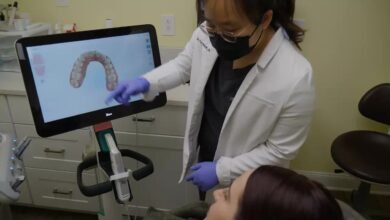Root Care in Burien: The Definitive Guide to Choosing an Endodontist

Introduction
Finding the right specialist for root canal treatment can feel overwhelming, especially when tooth pain or an urgent referral is involved. An endodontist is a dental specialist trained to diagnose and treat issues inside the tooth the dental pulp and root structures using advanced tools, magnification, and techniques that general dentists may not routinely provide. In Burien, patients benefit from local practices that combine modern technology with patient-centered care: digital imaging, operating microscopes, rotary instruments, and materials that improve the success and longevity of treatment. Choosing an endodontist who demonstrates clinical expertise, clear communication, and compassionate pre- and post-treatment support improves outcomes and reduces anxiety. This article follows principles highlighting expertise, experience, authoritativeness, and trustworthiness by explaining credential-based indicators, common services, practical selection criteria, realistic treatment expectations, and sensible aftercare guidance so you can make an informed decision for your dental health.
What is an endodontist and why specialist care matters
An endodontist is a dentist who has completed additional years of specialty training focused specifically on the diagnosis and treatment of tooth pain and internal tooth disease, most commonly root canal therapy. While general dentists can perform many procedures, endodontists concentrate on treating complex cases: curved or calcified canals, retreatments after previous root canal failure, traumatic dental injuries, and infections that threaten surrounding bone. Their extra training includes advanced imaging interpretation, use of microscopes for precise work, and specialized instrumentation to clean, shape, and seal root canal systems thoroughly. Specialist-level care often means higher success rates for preserving natural teeth, reducing the need for extractions or more extensive restorative work later. For patients in Burien, seeing an endodontist can be particularly valuable when symptoms are severe, diagnostic uncertainty exists, or when a tooth is strategically important for long-term oral function and aesthetics. Choosing a trained specialist helps align treatment with best-practice protocols and evidence-based materials, increasing the odds of a comfortable, durable result.
Services you can expect from an endodontist in Burien
Endodontic practices in Burien typically offer a comprehensive suite of services beyond routine root canals. Core services include primary root canal therapy to remove infected pulp, endodontic retreatment for previously treated teeth that have persistent or recurrent infection, and surgical endodontics (apicoectomy) when the infection persists at the root tip. Many specialists also handle dental trauma management stabilization and treatment of cracked, displaced, or knocked-out teeth and perform diagnostics for unexplained tooth pain using advanced imaging like digital radiographs and CBCT scans when indicated. Patient comfort measures are also prioritized: local anesthesia techniques, sedation options for anxious patients, and clear pre- and post-operative instructions. A Burien endodontic office that prioritizes continuing education and uses modern equipment demonstrates commitment to quality care. When assessing services, ask whether the practice documents outcomes, uses up-to-date materials for obturation and sealing, and coordinates closely with your restorative dentist to ensure the treated tooth receives appropriate long-term restoration.
How to choose the right endodontist in Burien
Selecting the right endodontist involves evaluating credentials, experience, and patient-centered factors. Start by confirming board certification or specialty accreditation and look for membership in professional dental organizations these indicate commitment to continuing education and adherence to clinical standards. Review practical experience: how many similar cases the specialist handles, whether they routinely treat complex retreatments or trauma cases, and how they manage diagnosis (including use of CBCT or microscopes). Patient reviews can reveal communication style and office processes friendly staff, clear pricing, timely appointments, and effective pain management matter. Accessibility is another consideration: emergency availability, coordination with your general dentist, and insurance or financing options. During your consultation, notice whether the endodontist explains diagnosis and treatment options clearly, discusses potential risks and success rates, and provides written consent and postoperative instructions. Choosing a clinician who balances technical skill with transparent communication and compassionate care will improve both your clinical outcome and overall experience.
What to expect during treatment and recovery
A typical endodontic visit begins with a focused examination and imaging to confirm the diagnosis and treatment plan. During root canal therapy, the endodontist isolates the tooth with a rubber dam, creates a precise access opening, and uses specialized instruments and irrigation solutions to thoroughly clean the canal system. Many offices use magnification and digital tools to improve visualization and accuracy. The canals are shaped and sealed with biocompatible materials to prevent reinfection. For single-visit or multi-visit approaches, your clinician will explain the rationale and schedule. Post-treatment, some soreness or sensitivity for a few days is common and manageable with over-the-counter pain relievers as advised. Follow-up includes restoring the tooth with an appropriate filling or crown often coordinated with your restorative dentist to protect the tooth structurally. Adhering to postoperative instructions, maintaining good oral hygiene, and attending restorative appointments are critical for long-term success and tooth preservation.
Conclusion
Choosing the right endodontist in Burien means balancing clinical expertise, modern equipment, and empathetic patient care. Endodontic specialists provide targeted treatments that preserve natural teeth, relieve pain, and restore function especially in complex or previously treated cases. Use credential checks, patient reviews, and a clear consultation process to identify a provider who communicates transparently, uses evidence-based techniques, and coordinates with your dental team. With informed selection and appropriate follow-up care, endodontic treatment can be a reliable path to saving a damaged tooth and protecting your oral health for the long term.
FAQs
Q: How do I know if I need to see an endodontist?
A: Persistent tooth pain, swelling, sensitivity to hot or cold that lasts after the stimulus is removed, deep decay near the pulp, or a tooth that has been traumatized are common reasons for referral. Your general dentist may recommend an endodontist when specialized treatment or advanced diagnostics are needed.
Q: Is root canal treatment painful?
A: Modern endodontic techniques and local anesthesia make root canal therapy comparable to having a routine dental filling for many patients. Mild soreness may follow the procedure, but severe pain is uncommon and typically manageable with prescribed or over-the-counter medication.
Q: How long does a root canal appointment take?
A: Treatment time varies by case complexity. A straightforward primary root canal can often be completed in one visit lasting about 60–90 minutes. More complex cases or retreatments may require longer or multiple visits; the endodontist will explain the expected schedule.
Q: Will my insurance cover endodontic treatment?
A: Coverage varies by plan. Many dental insurance policies cover a portion of endodontic procedures. Check with your insurer and the office’s billing staff for estimates; most practices help verify benefits and offer payment options when needed.
Q: What are success rates for root canal therapy?
A: Success depends on diagnosis, tooth condition, and restorative follow-up, but modern endodontic treatment typically has high long-term success rates. Proper sealing and timely restoration (often a crown) improve outcomes and reduce the chance of reinfection.



